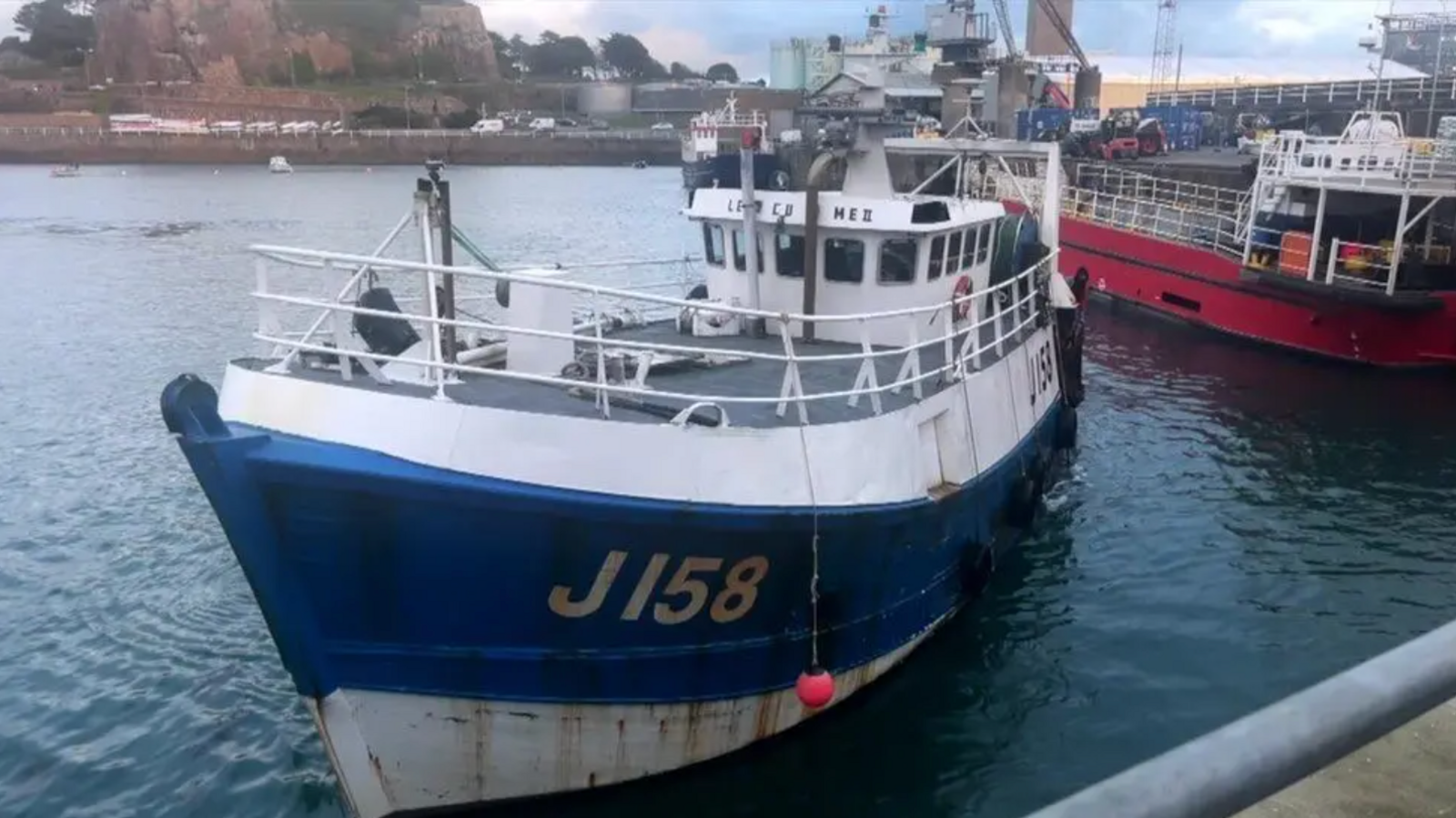Lookout asks if fishing crew 'asleep' before crash
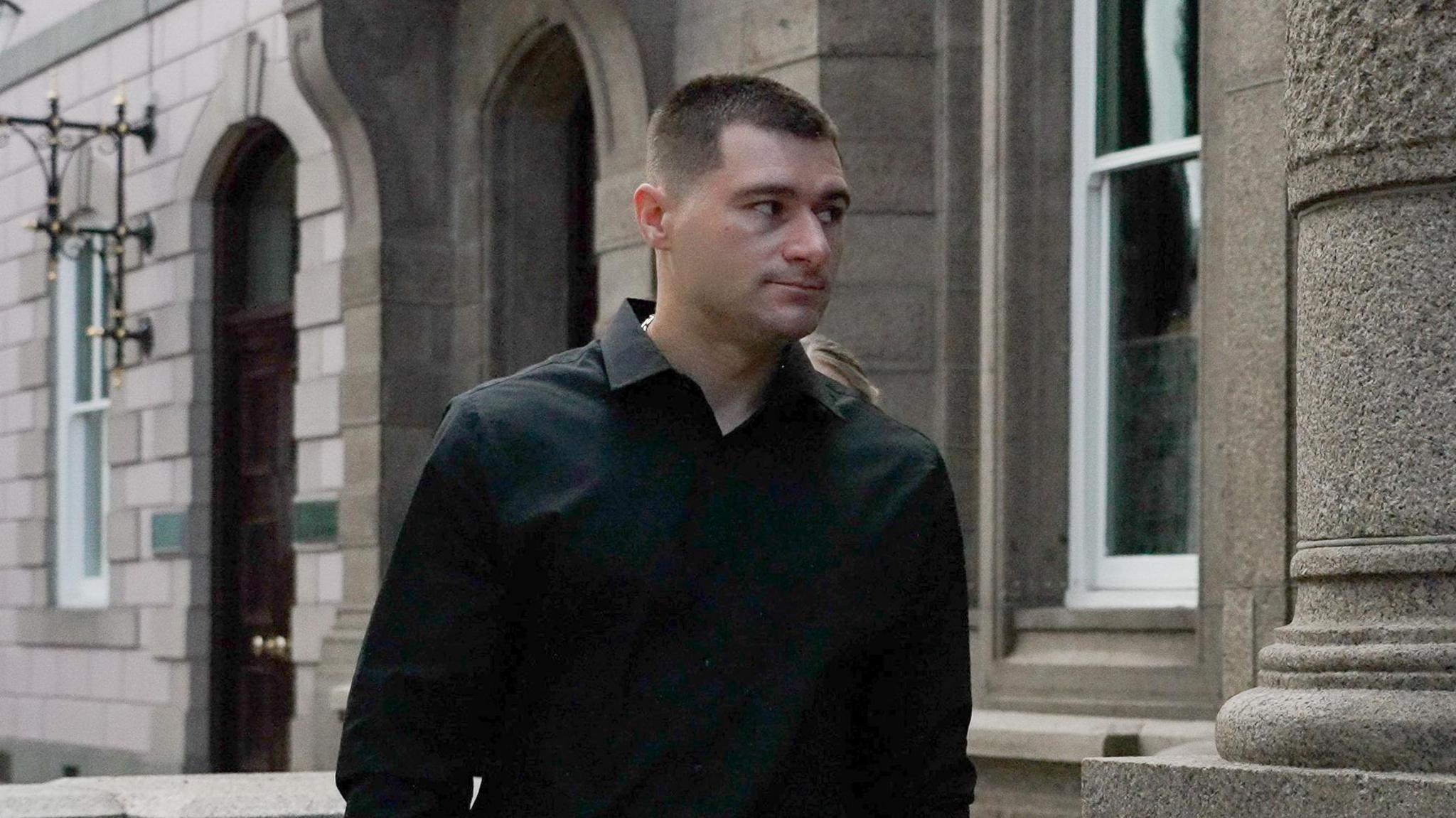
Artur Sevash-Zade denies gross negligence manslaughter
- Published
The lookout on a Condor ferry that collided with a fishing trawler, killing all three men onboard, asked if the crew were asleep before the crash, a court has heard.
Artur Sevash-Zade and Lewis Carr deny three counts of gross negligence manslaughter for the deaths of skipper Michael Michieli and his L'Ecume II crew Larry Simyunn and Jervis Baligat on 8 December 2022.
Jersey's Royal Court heard conversations of Mr Sevash-Zade and Mr Carr with Condor Ferries' head health and safety officer Christopher Jones the day after the collision, which was obtained as evidence by police.
On seeing L'Ecume II approach, Mr Sevesh-Zade had asked "is this [expletive] guy sleeping?", the court was told.
Mr Sevash-Zade told Mr Jones that he had been sent for breakfast about 10 minutes into shift.
Upon returning at about 05:10 BST, Mr Sevash-Zade told Mr Jones that "Lewis showed me immediately dangerous vessel" regarding L'Ecume II.
He said the ship's radar showed a "100%" collision risk 25 minutes before the crash.
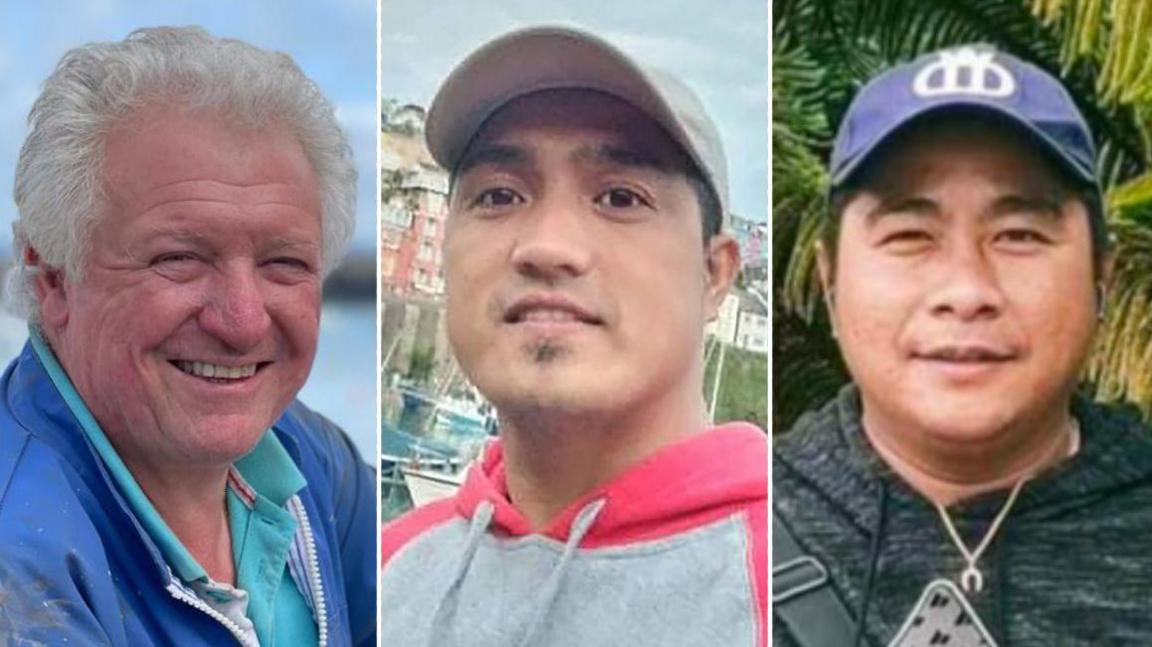
Michael Michieli, Jervis Ramirez Baligat and Larry Simyunn died in the collision
Mr Sevash-Zade said: "I see this boat without binocular because visibility is good" and that he then marked the boat "on my port radar".
The court then heard that Mr Sevash-Zade was sent by Mr Carr to prepare the ship for arrival in Jersey by preparing the moorings portside (on the left, outside).
"When I prepare, I didn't see this vessel," he said.
Mr Sevash-Zade then said he went to the other side, starboard (on the right), and noticed L'Ecume II was "very very close to our ship".
He said he returned to the bridge and asked Mr Carr "is this [expletive] guy sleeping?".
He said the sounding of the whistle to warn L'Ecume II of its proximity was given "10 second[s] maximum" before the collision.
"This was too late," Mr Sevash-Zade told Mr Jones.
He added: "This was very fast - in this moment I go from portside to starboard side.
"After collision I go to starboard to check this vessel... don't know how to say this, [to check L'Ecume II crew] if still alive."
Mr Sevash-Zade said Mr Carr "didn't give me any more orders" after the collision happened.
In a police interview from 12 July 2023, Mr Sevash-Zade explained how he was overqualified for his role as seaman, as he had qualifications for an officer role, the court heard.
He said he had never worked officially as an officer but if he could not find a job in that role he could work as a seaman as well.
Mr Sevash-Zade said he was "absolutely confident" in using the radar as part of the lookout role and would "do some manual steering as well" if the officer allowed it.
He said he understood and communicated in English well and had to pass the maritime test for English before being put forward for a role at Condor.
Mr Sevash-Zade said although "people speak Russian as well... everybody speak English and it's comfortable".
By rule, he said everyone had to communicate in English on the bridge.
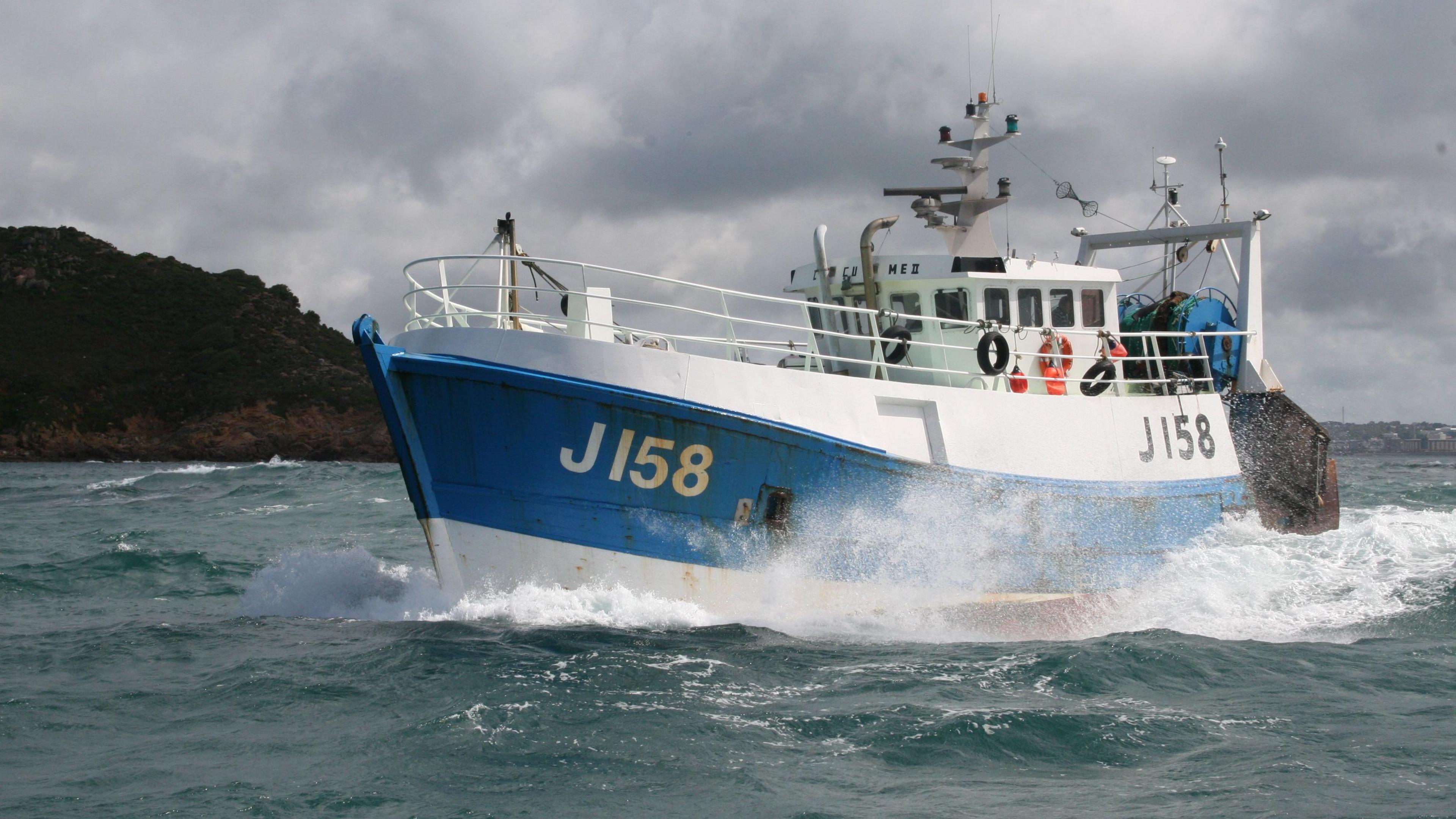
L'Ecume II sank following the collision with the freight ferry on 8 December 2022
In Mr Carr's interview with Mr Jones, which was also obtained as evidence by police, the second officer said it was "normal" to send the lookout for breakfast "if there's no immediate traffic".
Mr Carr said he was "catching up on paperwork" at the chart table, located at the back of the bridge with limited sight of the waters, during that time.
He said watch then "continued as normal" upon Mr Sevash-Zade's return and L'Ecume II was targeted on the radar.
He said: "I altered course 10 degrees starboard - my intention from that was to open up... so the fishing vessel would be passing down our port side.
"We'd both seen this fishing vessel."
Mr Carr said his memory was "not exactly clear" but that "the light was here, then all of a sudden it was crossing the bow".
He said: "I could see the light coming across, I had about 10 seconds to do something.
"There was no consideration from the fishing vessel... from my perspective the fishing vessel was passing clear."
In a recorded Teams conversation in January 2023 with Mr Carr and members of Condor Ferries, he told the men that "obviously I would've still been monitoring the radars and the fishing boat at the time" when he was doing the pre-arrival bridge checks at the chart table.
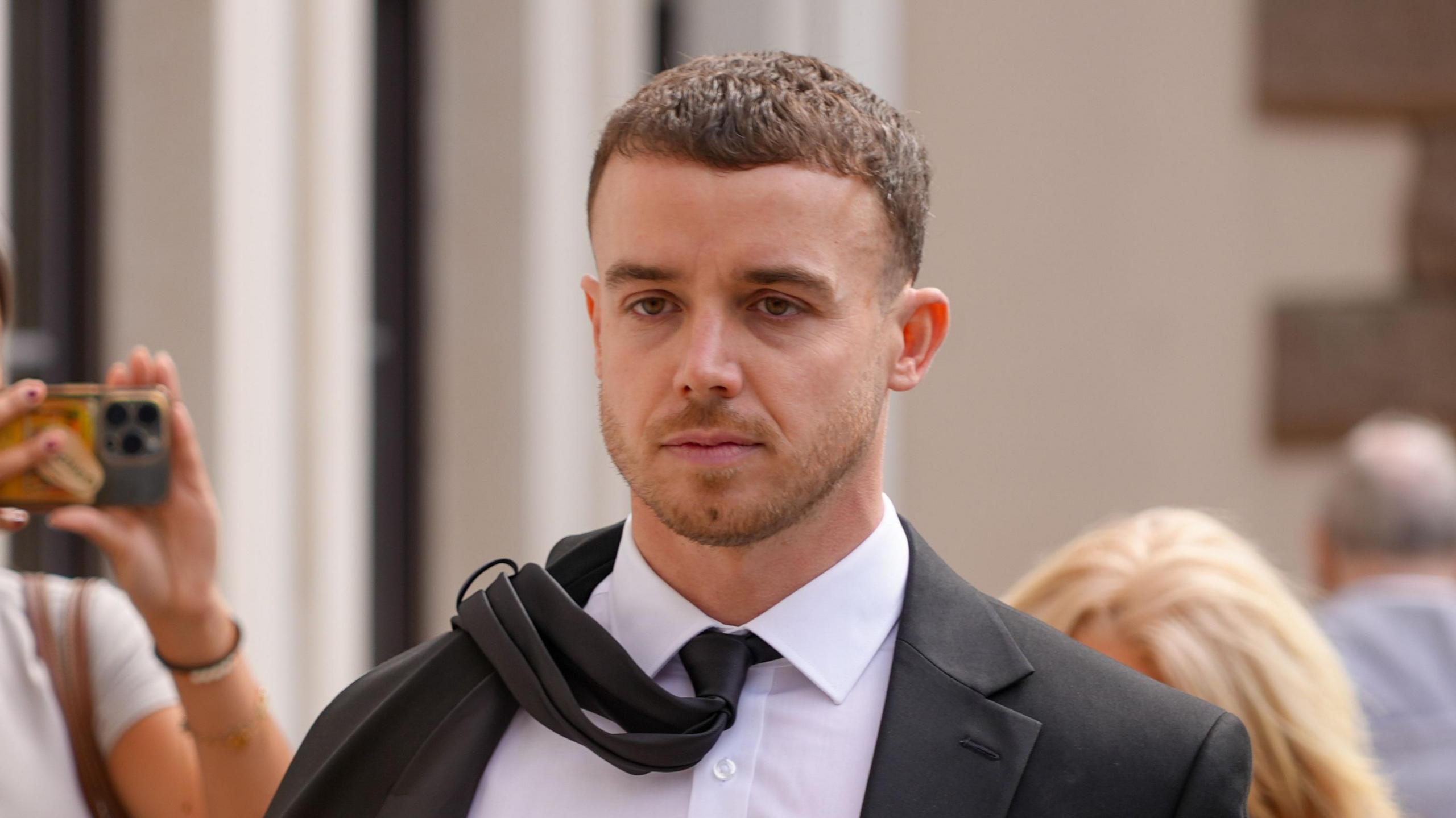
Lewis Carr also denies three counts of gross negligence manslaughter
Investigating officer Det Cons Dan Grigoras said the force was denied evidence by maritime officials in the Bahamas - where Condor's Commodore Goodwill was registered.
Det Cons Grigoras told the court that the maritime authorities in the Bahamas conducted a "no blame" health and safety investigation after the crash.
He said he was denied evidence when he asked investigators for recordings of the electronic navigation system on the Goodwill.
Capt Brian McJury, a maritime expert with more than 30 years' experience, said he estimated it would take the Goodwill about two and a half minutes to fully stop from a full speed of 18 knots.
Answering questions from the Crown prosecution, he told the court regarding blind spots on the merchant vessel that it was "quite easy to negate any" with sight and electronic systems and that he expected "any officer to be doing that".
Capt McJury said that the team on the bridge "should be considerably more alert" on a night shift and that both roles were responsible to be on lookout for spotting and monitoring boats.
He added that deciding how to avoid a collision was down to the officer of the watch.
Capt McJury told the court that having seen photographs of L'Ecume II and its inspection certificates, he had no concerns of its seaworthiness.
He said L'Ecume II's technology, including its watch alarm, "was excess" of Jersey requirements and that it was "quite common" for older vessels to still be out at sea.
L'Ecume II was built in 1968 and had been inspected and passed in June 2022, six months before the collision.
Capt McJury added that there was "nothing particularly unusual" for a fishing vessel of L'Ecume II's size to have a crew of three.
The trial continues.
Follow BBC Jersey on X, external and Facebook, external. Send your story ideas to channel.islands@bbc.co.uk, external.
- Published8 September
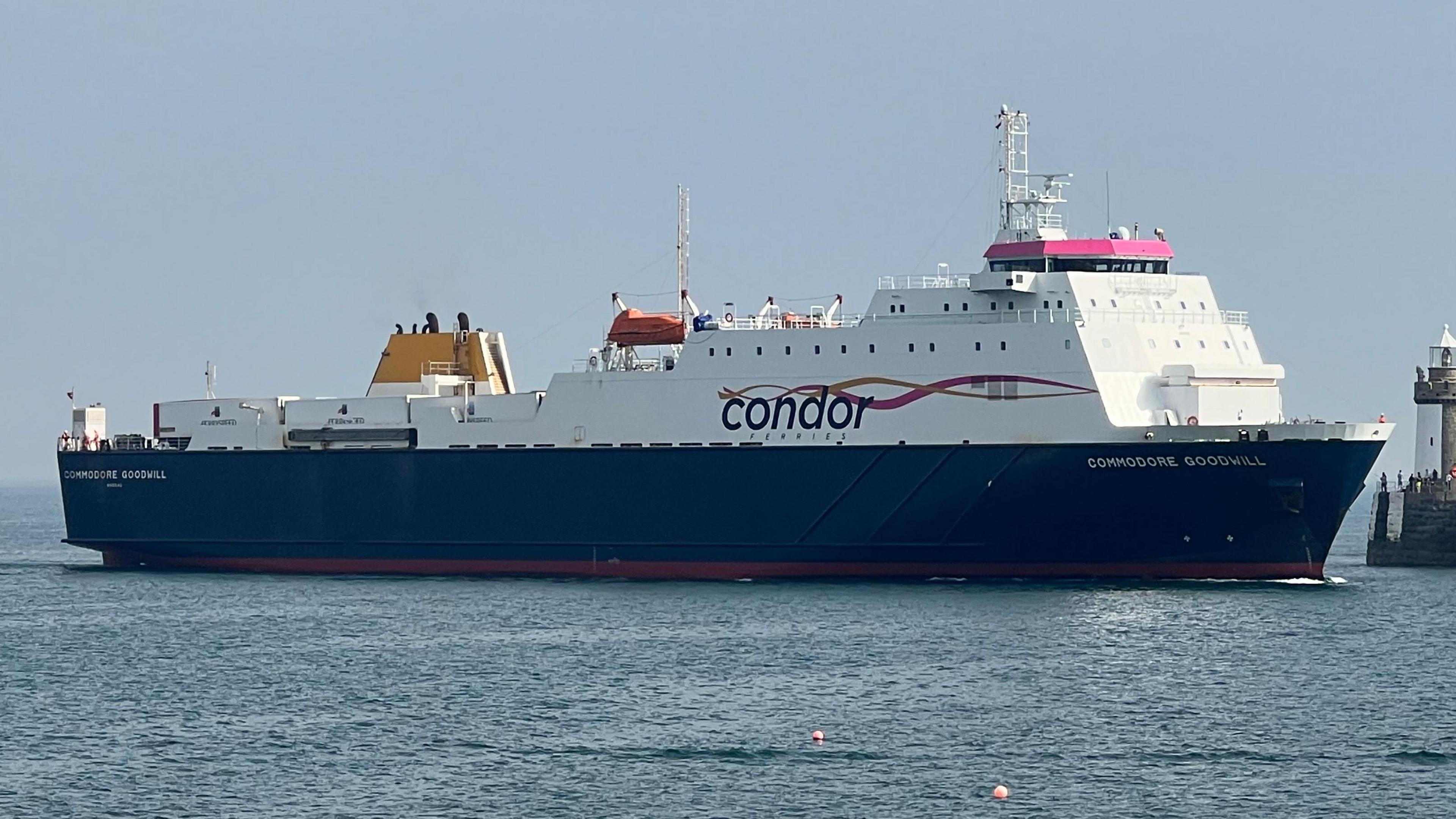
- Published5 September
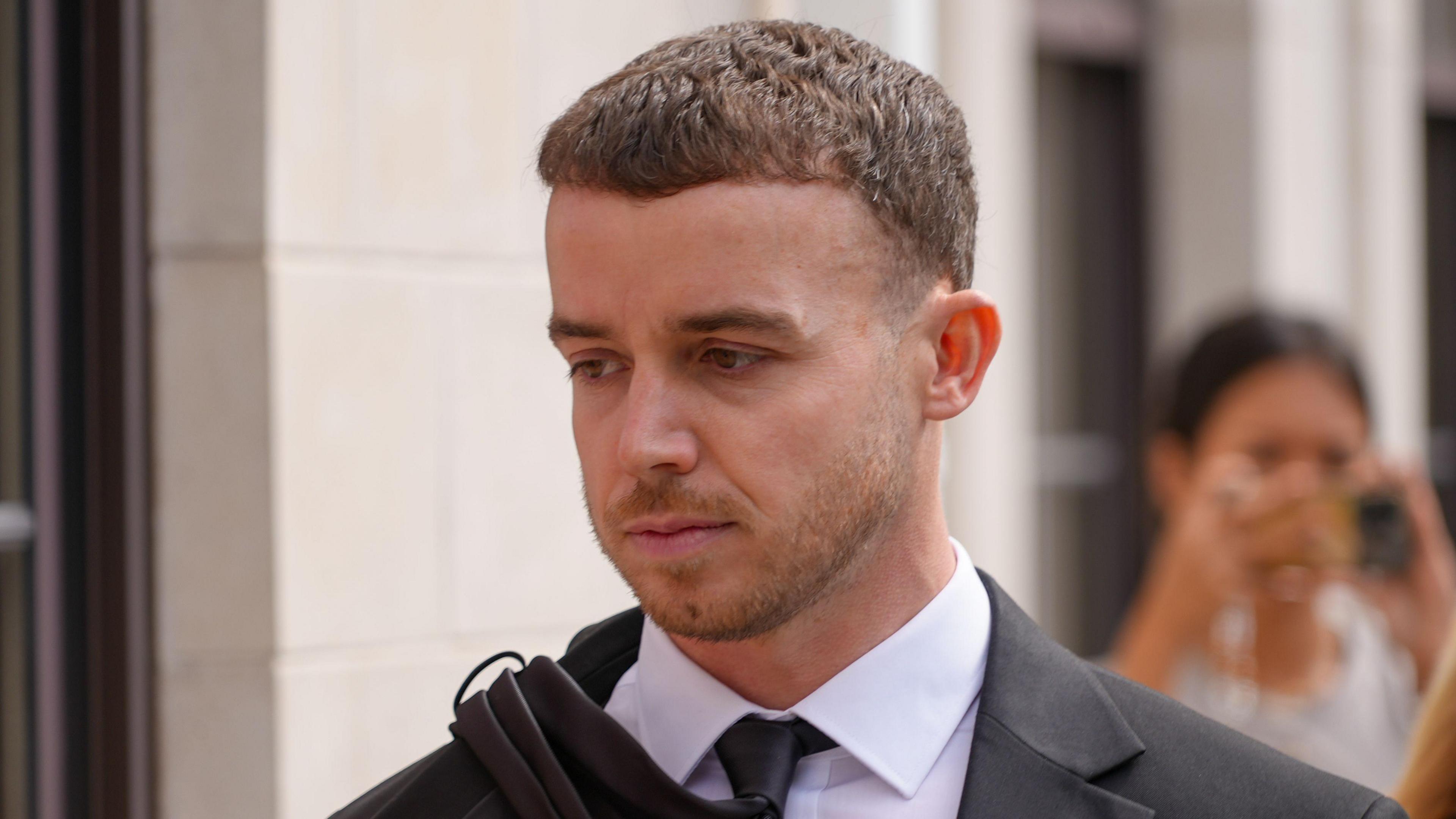
- Published4 September
